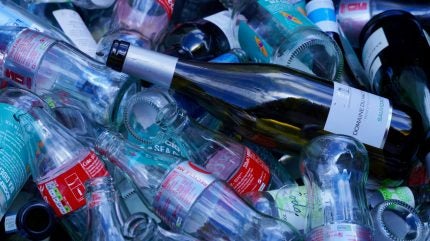
The UK hospitality sector has voiced significant concerns regarding the cost and impact of the extended producer responsibility (EPR) policy on the industry proposed by the region’s Department for Environment, Food & Rural Affairs (Defra).
The proposed EPR requires packaging producers to pay a fee for managing their packaging, which they supply to or import into the UK market.

Discover B2B Marketing That Performs
Combine business intelligence and editorial excellence to reach engaged professionals across 36 leading media platforms.
A coalition of bodies has communicated their worries to the prime minister and chancellor, stating that Defra has not fully considered the economic repercussions of EPR on investment and growth within the UK.
The coalition, which includes UKHospitality, the British Beer and Pub Association, and other influential industry groups, has requested a minimum one-year delay in the introduction of EPR.
It is urging the government to instruct Defra to address the issues that have reportedly been “deprioritised” in efforts to mitigate the impact.
One of the primary concerns raised is the potential for double payment by hospitality businesses for waste collection.

US Tariffs are shifting - will you react or anticipate?
Don’t let policy changes catch you off guard. Stay proactive with real-time data and expert analysis.
By GlobalDataDue to the current policy design, bottles of beer and wine are incorrectly classified as household waste, subjecting them to a packaging levy despite not leaving hospitality premises.
As a result, venues may face additional costs passed on by producers under EPR, on top of what they already pay for business waste collection services.
The absence of a final announcement regarding EPR fees and the ongoing confusion around double payment are disrupting investment decisions and undermining business confidence within the hospitality sector, according to the bodies.
They also say these additional costs are likely to be transferred to consumers, potentially affecting sector performance and contributing to inflationary pressures.
Furthermore, the coalition highlights a disproportionate cost burden on glass. The indicative fees for glass are considered excessively high, which may incentivise a shift to plastic packaging. This would counteract the high recycling rate for glass and contradict EPR’s objective to drive recycling.
The industry leaders have said the current approach to EPR could have far-reaching negative effects on the UK’s hospitality sector. They are calling for immediate government action to reassess and adjust the policy to prevent potential economic harm.
The letter to Prime Minister Kier Starmer stated: “There is a widespread belief that this legislation is being introduced far too quickly, and the financial burdens placed on businesses and their impact on growth, are not being acknowledged by Defra.
“Indeed, Defra has confirmed that EPR will operate in an unfair manner for at least two years. We know from our members that this will impact upon investment in the UK.”
Earlier this month, the UK government started the formal process of notifying the EU about planned amendments to EPR for packaging regulations in Northern Ireland.



